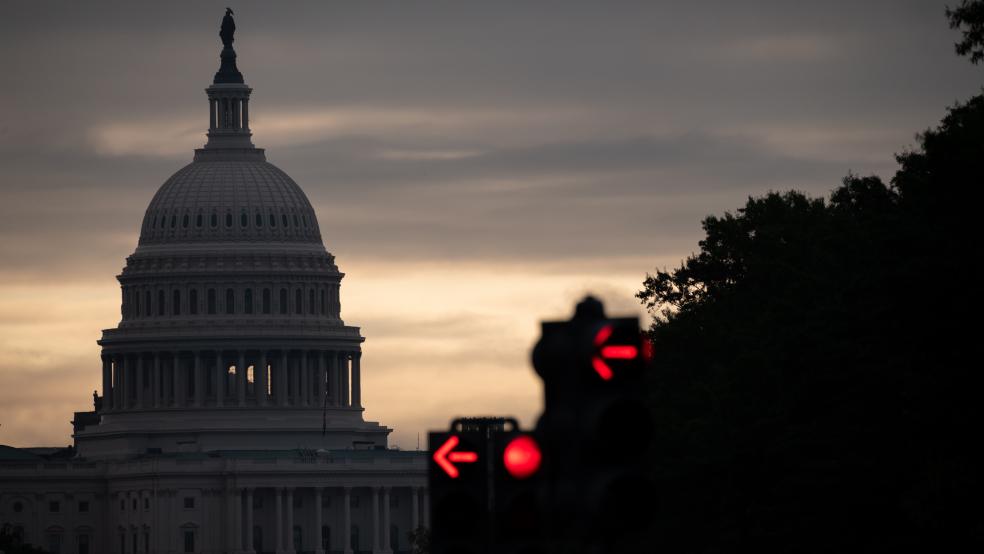The U.S. could hit its self-imposed $31.4 trillion debt limit in a matter of days or weeks, the Associated Press’s Josh Boak and Fatima Hussein report Wednesday, setting up what is could be a high-stakes clash between Republicans and Democrats later this year.
Any such crisis won’t hit immediately. Once the nation’s borrowing authority is reached, the Treasury Department will resort to what it calls “extraordinary measures” to continue meeting the federal government’s financial obligations, as it has done in the past. Those measures include delaying some payments, such as contributions to federal employees’ retirement plans, in order to provide some headroom to make other payments that are deemed essential, including those for Social Security and debt instruments. (The Treasury discusses its options in this 2021 document.)
Eventually, though, the Treasury will run out of options and be unable to meet all of its obligations. That threshold, the so-called “X-date,” could arrive sometime this summer, though much depends on spending levels and tax revenues over the next few months.
A looming confrontation: The far-right Republicans who held up Speaker Kevin McCarthy’s (R-CA) ascension to the top position in the House have vowed to use the need to raise the debt ceiling as leverage in their campaign to reduce federal spending. McCarthy has reportedly agreed to their demand that any increase in the debt ceiling be accompanied by a reduction in spending that sets a return to 2022 budget levels as a target.
Political insiders on both sides of the aisle say a drawn-out confrontation over the debt ceiling is a real possibility. Zach Moller, a budget expert at the centrist think tank Third Way, told The Hill that he is concerned that the clash would cause lawmakers to miss their deadline. “The House Republicans really seem to want to drag their feet on the debt limit,” he said. “I’m really worried that the unknown nature of the X-date, the default date, and how slow the House may move, we may find ourselves in a situation where we’re defaulting.”
Republican Brendan Buck, who advised former speaker John Boehner (R-OH) during the 2011 battle over the debt ceiling led by lawmakers affiliated with the tea party — a battle that resulted in a downgrade of the nation’s credit rating — said he thinks another showdown is likely. “I’m not saying it’s healthy to worry about the debt limit every day for the next nine months, but I am saying you probably should,” he tweeted.
How worried should we be? Analysts are divided over just how much of a threat the coming standoff over the debt ceiling represents. Libby Cantrill, head of public policy at bond giant PIMCO, told Politico’s Morning Money that her firm is not ringing the alarm bells just yet, since they still see a path to a debt limit increase that involves moderate Republicans and Democrats working together. “For the market’s purposes, as long as there is that release valve — a mechanism to force a clean debt ceiling increase — we are not exceedingly concerned about the chances of a default,” Cantrill said.
But Elliot Hentov, head of policy research at State Street Global Advisors, told Politico that the rise of the far right is increasing the risk of a crisis. While he doesn’t think the U.S. will miss a debt payment — a disastrous turn of events that would shake the world economy — he is worried that a confrontation could last for some time, pushing the Treasury Department to take unprecedented and perhaps legally questionable steps to keep making its payments.
“In all the previous debt ceiling episodes, I always felt like at the end of the day, I understood the need for the theatrics, but I could see a landing zone for how it gets resolved,” said Hentov. “Here, I don’t see that yet, and it makes me quite uncomfortable.”
Bank of America strategist Ralph Axel reportedly told clients he sees the potential for a technical default. “We think it is likely that by late summer or early fall, the federal government will temporarily be forced to default on a portion of its daily obligations for a time ranging between a couple of days to a few weeks,” he wrote, according to Bloomberg News. “If so, this would represent the first time in history that the US would default on any of its obligations due to the debt ceiling law.”
The bottom line: There could indeed be trouble ahead. “Debt limit negotiations are always protracted and almost always contentious, and the political trends seem to make it likely that they will exacerbate those tendencies and will create a volatile situation,” said Shai Akabas, director of economic policy at the Bipartisan Policy Center, per the AP. Akabas added that we will have a better fix on the situation later this month, when the Congressional Budget Office updates its outlook for the budget, providing more data for when the X-date is expected to arrive.




